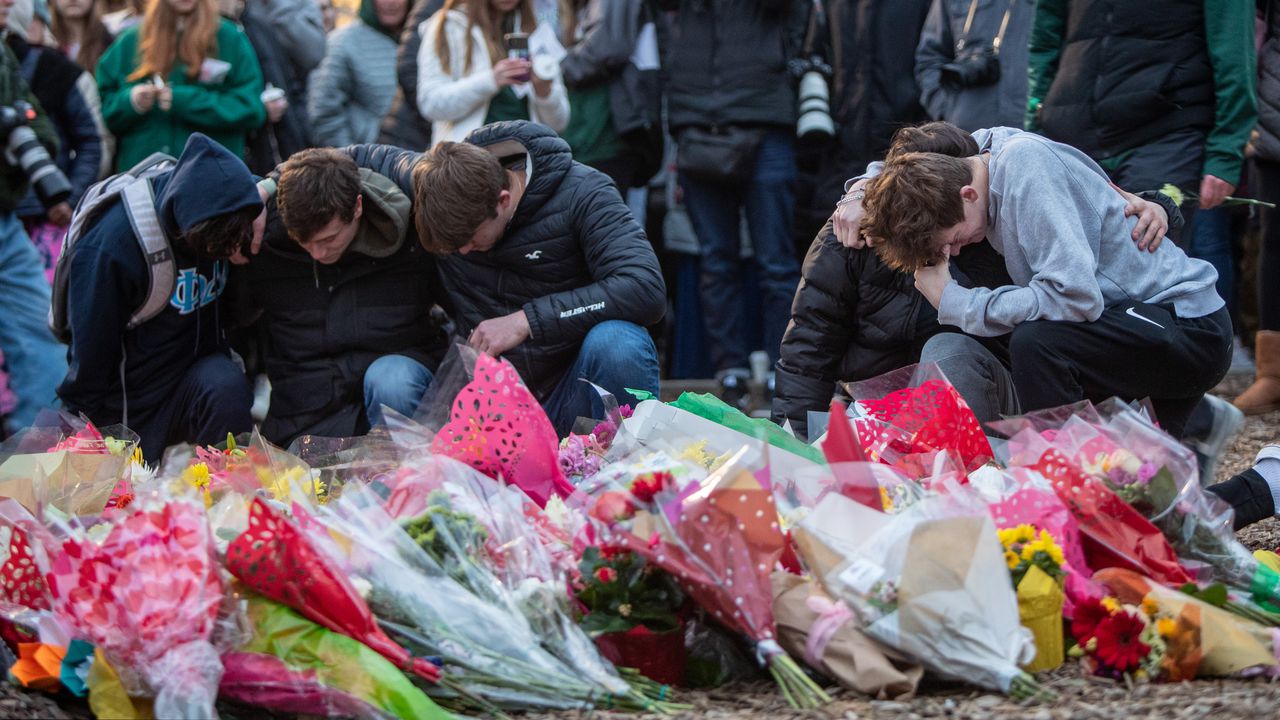Heaven help us if we respond to mass shootings with a collective yawn
Reporter: We have breaking news here at (name of news outlet). Police in (city, state) say a gunman opened fire at a (school, college, place of business or entertainment venue). Police say at least (number) of people are believed to be dead and at least (number) are injured, some critically. We will update this story as information becomes available.
Viewers: Yawn.
Reporter: Police confirm that two people are dead in that shooting we just told you about.
Viewers: Another yawn.
Reporter, later in the week: Just five days after the most recent shooting in (city, state), police in (city, state) are reporting another mass shooting.
Viewers: Yawn.
Reporter, later in the month: It’s only been two weeks since the last mass shooting in our country, yet today, police in (city, state) say a gunman opened fire …
Viewers: Z-z-z …
You may not actually yawn or fall asleep when you hear or read about another mass shooting in the United States. Indeed, your heart may skip a beat, as mine does, and you may feel a wave of sadness washing over you, as I do. We both may watch and read avidly about the shooting for a day or two, but the truth is, soon we’re thinking and worrying about other things.
Sadly, we’ve become numb to the fact that mass shootings occur almost daily in our nation. Or, even worse, we’ve become fatalistic: We rationalize that while the shootings are awful, there isn’t anything you or I or anyone else can do about them. We can’t keep angry, unbalanced sickos from buying guns, buying ammo, making a plan and carrying it out.
Is it any wonder that we will not let ourselves dwell on the frequency of these horrible events? If we thought too specifically about the victims — the bodies of children with ghastly wounds, the supermarket customers scrambling for safety, the concertgoers dodging bullets, the worshipers gunned down in churches and synagogues — could we bear the anguish?
Probably not.
And if we really contemplated the carnage, would that compel us to cry out for solutions? Would it force us to declare as a people that we won’t let ourselves see mass shootings as regular, normal, another-day-another-slaughter events?
A Michigan State University professor believes that’s exactly what might have to happen for us and, especially, for our political leaders to take steps toward reasonable gun regulations, affordable mental health counseling, and a national conversation — to replace the national arguments we’re having now — about balancing the right to own guns and the right to be safe from gun violence in schools, stores and churches, and on the streets of our cities.
Dr. Marco Díaz-Muñoz was teaching his Cuban literature class on the evening of the Michigan State shooting, when a masked gun man barged into the classroom and opened fire. That night, mass shootings became a reality for him.
“It’s very different to hear in the news a statistic — three more kids died or 12 more died — than to see what I saw,” he told CNN afterward. “I think if those senators or lawmakers saw what I saw, not just heard statistics, they would be shamed into action.”
It’s not reasonable or practical to expect every American to witness the kind of carnage that the MSU professor saw in his classroom, but is it too much to ask that we all take a hard look at the causes and consequences of the escalating gun violence that afflicts our nation? And to demand that our leaders and lawmakers set aside their partisan rancor and re-election concerns long enough to, at the very least, begin taking some baby steps toward finding ways to rein it in?
It’s clear that there are things federal and state governments can do about gun violence. It’s also clear that ordinary Americans have a role to play to play in grappling with the problem.
Above all, though, it should be clear that we cannot afford — nor should we want — to dismiss reports of mass shootings with a collective yawn or snooze.
In its own way, that would be as destructive as the gun violence itself.
Frances Coleman is a former editorial page editor of the Mobile Press-Register. Email her at [email protected] and “like” her on Facebook at www.facebook.com/prfrances.
